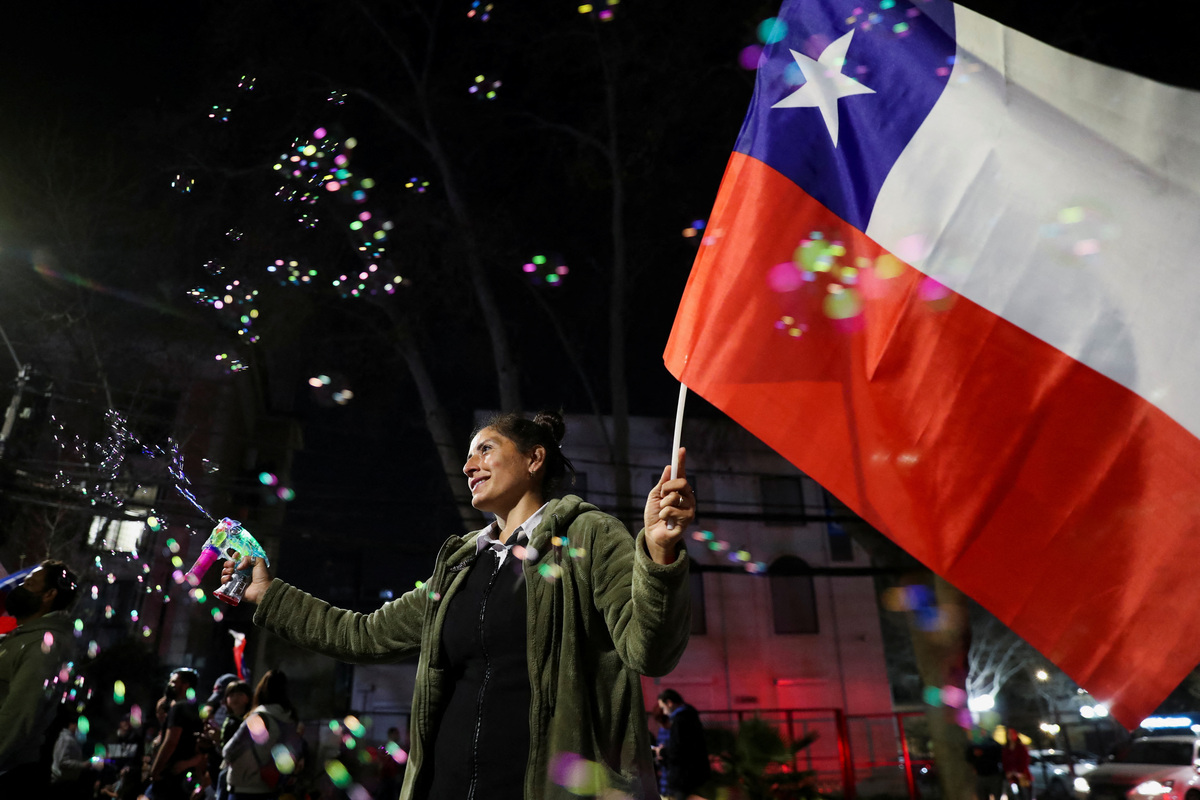Akhilesh Yadav demands referendum in the country on EVMs
"Elections through ballot paper are necessary to restore the faith in democracy,” said the Samajwadi Party president.
A clear majority of 55.76 per cent of Chileans voiced their disapproval of the proposed overhaul of a constitution that dates back to the era of dictator Augusto Pinochet.

A supporter of the reject option reacts to the results of the referendum on a new Chilean constitution in Santiago, Chile, September 4, 2022. REUTERS/Ivan Alvarado
Nestled in the heart of South America, Chile faces a critical juncture in its constitutional journey, where the rejection of a new conservative con- stitution in a referendum on Sunday mirrors the com- plex interplay of political currents and societal dis- content. A clear majority of 55.76 per cent of Chileans voiced their disapproval of the proposed overhaul of a constitution that dates back to the era of dictator Augusto Pinochet. This marks the second rejection in as many years, reflecting the continuing aftermath of the 2019 protests against inequality. President Gabriel Boric, acknowledging the deep divide within the nation, stated that the process “didn’t channel the hopes of having a new constitution written by every- one.” The rejection underlines a palpable disillusion- ment among citizens, many of whom had initially embraced the prospect of change. A 65-year-old sec- retary from Valparaiso, after casting her ballot, expressed a sense of disappointment, saying, “I sin- cerely thought things were going to change. But unfor- tunately, nothing changes.” The journey toward con- stitutional reform has been marked by twists and turns. The first attempt, dominated by left wing forces, focused on social, indigenous, environmental, and gender rights. However, this draft faced a resounding rejection. The pendulum swung right for the second attempt, with conservative parties dominating the assembly elected to draft a new constitution. The pro- posed text was deemed more market-friendly but maintained a conservative stance on private property, immigration, and abortion. Four years of intense debate and constitutional discourse have brought Chile back to a familiar junction. Observers suggest that the conclusion of the vote might usher in a period of political stability and investor confidence.
However, the key question remains. What will the government do next? President Boric, ruling out a third constitution rewrite, has pledged to address citizens’ concerns through pension and tax reforms. The em- phasis on dialogue, consensus, and action echoes the broader sentiment that the nation craves tangible solu- tions to its deeply rooted issues. Observers note that the ease of changing the constitution today raises qu- estions about the government’s resolve. Yet, amidst this constitutional conundrum, there lies a poignant reflection on the broader socio political landscape. The rejection exposes the fractures in Chilean society, where irreconcilable differences hinder the forging of a middle ground for progress. An architect in Santiago succinctly captures the sombre reality: “Our differ- ences are so irreconcilable that we cannot find a mid- dle ground from which to move forward, and that is very sad indeed.” As Chile navigates these turbulent waters, the rejection of a new constitution serves as a stark reminder that the path to reform is neither linear nor predictable. The country stands at the crossroads of its democratic journey, grappling with the ghosts of its past and the aspirations of its future, seeking a way forward in a dance of democracy and discord.
Advertisement
Advertisement